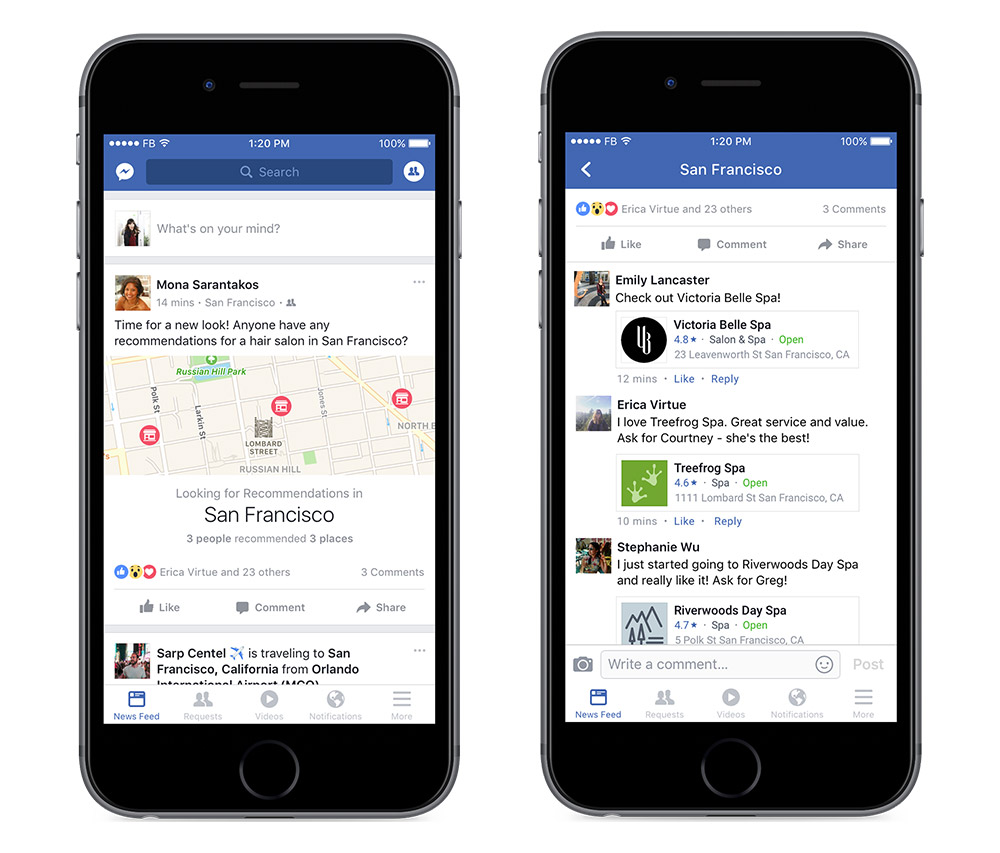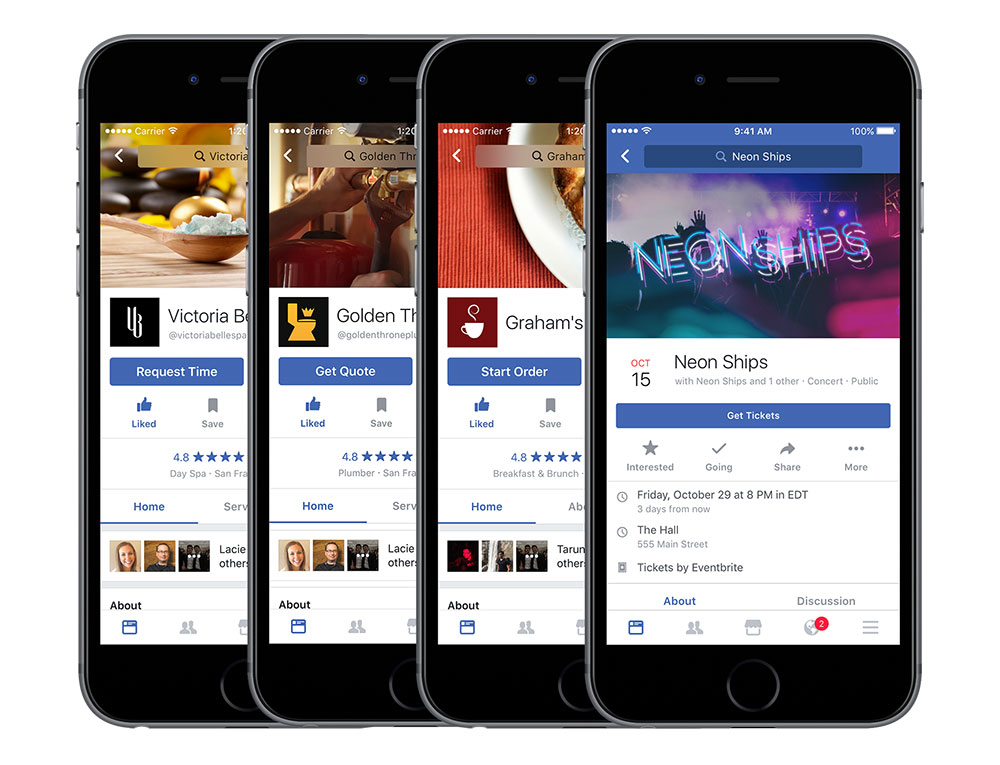
By Nancy Huang
Facebook has recently launched a new tool to help users discover new experiences, things to do, events, and services based on suggestions from their friends. After writing a post, Facebook now switches on a new “Recommendations” feature that lets others know they’re looking for advice.
Comments from friends appear in the original post and are also featured within a dynamic map. Each time friends mention a recognized place, the map then expands to include this extra information. If a recommended business has a Facebook Page, the tool automatically features their Page within the comments.
Along with this tool, Facebook has also launched a new set of call-to-action buttons that businesses can use on their Facebook Page, providing customers with the ability to request extra information, receive quotes, and place orders.
These new features have only just been rolled out in the U.S. and are still relatively limited in scope. However, Facebook has announced it’ll be expanding this service in the coming months to help customers connect with even more businesses.
Given its huge popularity as a travel research tool, it seems likely those developments will extend to the travel industry—including hotels. If that happens, Facebook could end up providing hotels with a potentially game-changing booking channel.
The influence of Facebook in travel
In an increasingly mobile-centric world, Facebook has become intimately entwined with the travel experience. In 2012, 42% of stories shared to Facebook timelines were related to travel, which made it the top story shared by its users.
These shared stories and experiences can be highly influential. For instance, a photograph of a friend sipping cocktails by the hotel pool can be enough to spark an instant sense of wanderlust (and a hint of jealously) that prompts action. In fact, 52% of Facebook users say their friend’s photos inspire their travel plans.
But travelers aren’t just influenced by passively browsing through a friend’s latest vacation photos. Facebook is also actively used as a research tool—a significant 87% of millennials rely upon it for inspiration before making a booking.
As Facebook makes it easier to gain recommendations, it’s likely that travelers will rely upon it even more heavily as place to conduct research. Depending on future developments of this tool, this could lead to a number of significant benefits for hotels.
An opportunity for more direct bookings?
While businesses have been able to feature call-to-action buttons on their Facebook Page for a while, the new set of customized buttons expands the opportunity for brands to connect with consumers.
These new buttons now enable users to order food, book tickets for movies and events, receive quotes, and arrange appointments. After clicking a call-to-action button, customers can also communicate with a brand through Facebook Messenger, so it’s now possible to receive a recommendation, request information, and make purchases within a single session.
While it’s still in its early days, hotel bookings could very well end up being a natural progression of this tool. If that ends up happening, it may change the nature of how travelers search for rooms, and ultimately impact where they complete their booking.
A new way of comparing hotels
Right now, price-focused OTAs and metasearch sites encourage a very specific kind of browsing and booking process. Travelers are encouraged to seek out the best deals and exclusive offers, forcing many hotels to lower rates to remain competitive.
But if Facebook’s new features start to include hotels, this could dramatically alter how booking decisions are made. Instead of visiting an OTA to compare hotels, travelers might be inclined to begin their search by visiting Facebook and asking friends for recommendations.
The nature of seeking tips in this way would naturally lead to a more open type of search. Suggestions would be made on past experiences or a pre-existing knowledge of a friend’s subtle likes and dislikes. In the end, a hotel recommendation might simply be made based on knowing the kind of feel or vibe a person might appreciate about a property.
If travel research becomes more socially influenced, hotels will need to focus even more energy on providing a great guest experience and unrivaled service, since these factors will be highly influential in leading someone to make a recommendation to a friend.
Less reliance on OTAs?
At present, there’s a good chance that a person who books a hotel based on a Facebook suggestion will make that booking via an OTA.
After receiving a recommendation, it’s likely they’ll carry out a Google search and see an OTA advert for the hotel they’re interested in near the top of the results page. In most cases, a person will click the OTA advert rather than searching for a link to the actual hotel website. But that could all change if Facebook facilitates hotel recommendations and bookings all in one place.
In this new scenario, a user would receive both a suggestion and a direct way of contacting or booking a room via a hotel’s own Facebook Page, representing an easier and hassle-free alternative to leaving the site.
When a business is recommended, Facebook also provides extra information including their address along with reviews and images. Past comments are also stored and saved in a central place for future reference. So even if a person isn’t ready to book, they can easily access a hotel’s contact details and instantly navigate to their Facebook Page at a later point.
Preparing for new developments
In the coming months, Facebook will be making it easier for consumers to connect with local businesses, and hotels may well be included in these developments. If that happens, it’ll be vital that hotels have their own Facebook Page to ensure potential customers have an easy way to communicate with them directly.
Encouraging social sharing will also become more important than ever. If customers increasingly seek out suggestions from friends and family, and if direct bookings do become possible, the importance of a glowing Facebook recommendation could have greater value than ever before.




